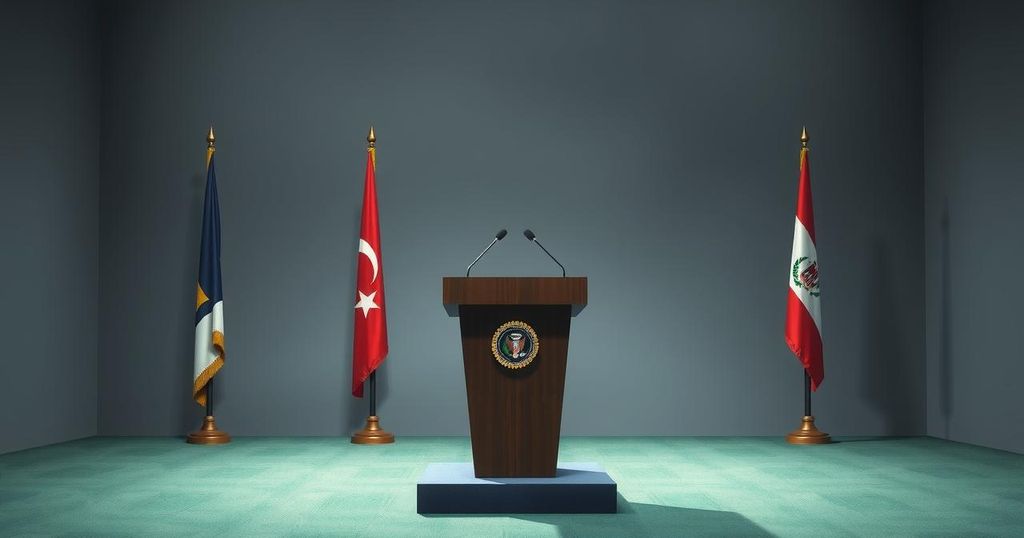Trump Imposes Tariffs on Goods from the UAE, KSA, Egypt, and Morocco
President Trump announced a 10% baseline tariff on all imports into the U.S., effective April 5, alongside specific tariffs on goods from the UAE, KSA, Egypt, and Morocco, effective April 9. This action aims to retaliate against unfair trade practices of these nations, while certain essential goods will remain exempt from tariffs.
In a recent announcement, President Donald Trump declared the imposition of tariffs on imports from the United Arab Emirates (UAE), Saudi Arabia (KSA), Egypt, and Morocco, effective April 9. This decision aims to counteract what the White House perceives as unfair tariffs and non-monetary barriers imposed by these nations on American products.
The new tariff structure includes a minimum baseline tariff of 10% on all imports into the United States from all countries. This baseline will take effect on April 5. Additionally, targeted tariff rates will be applied to specific countries, wherein goods from the UAE, Saudi Arabia, Egypt, and Morocco will incur an extra 10% levy, while Tunisian imports will face an increased rate of 28% and those from Jordan will be subject to 20% tariffs.
Notably, goods such as energy products, certain minerals not produced domestically, and commodities already subjected to tariffs, including steel, aluminum, and automobiles, will be exempt from these new tariffs. This strategic move is part of the United States’ broader initiative to protect its economic interests in the face of perceived inequities in global trade relations.
President Trump’s latest tariff initiatives reflect a significant shift in the U.S. trade policy aimed at reinforcing American interests against what is viewed as inequitable trade practices by select countries. By implementing a baseline tariff alongside targeted retaliatory measures, the administration seeks to safeguard the U.S. economy while maintaining exemptions for critical goods.
Original Source: www.entrepreneur.com








Post Comment